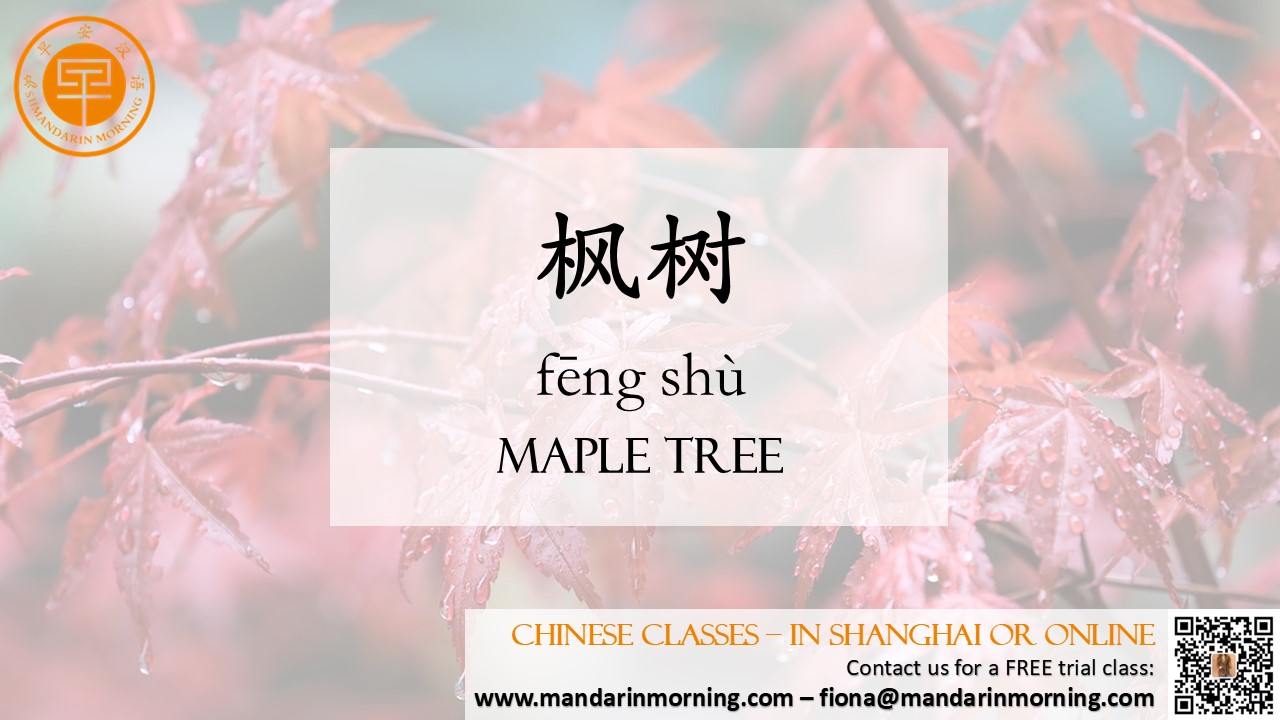| Is autumn your favorite season? The temperature starts to drop, and on a brisk day, there’s nothing better than enjoying the refreshing air while strolling in the park. These cool but sunny days are a delightful time of the year, full of vibrant colors and cozy moments. Let’s use your Mandarin vocabulary to capture the essence of autumn. In part one of our article, you will learn the first half of important autumn vocabulary.  Autumn/Fall 秋天 Autumn in Chinese is 秋天 (qiū tiān), where 秋 (qiū) means “autumn” and 天 (tiān) means “day” or “sky.” The character 秋 is made up of 禾 (hé), meaning “grain,” and 火 (huǒ), meaning “fire.” This reflects the traditional practice of burning fields after the harvest to prepare for the next planting season. Autumn is a time of harvest and preparation, making it a season of both closure and anticipation. Maple Tree 枫树 The sight of maple trees with their vibrant red leaves is one of the most iconic images of autumn. In Chinese, 枫树 (fēng shù) is the term for “maple tree,” where 枫 (fēng) means “maple” and 樹 (shù) means “tree.” To talk about “maple leaf,” you say 枫叶 (fēng yè). 叶 (yè) means “leaf.” Maple leaves are often associated with poetry and art in Chinese culture, symbolizing beauty and the passage of time. Windy 多风 Autumn winds bring a refreshing chill and a sense of change in the air. The phrase 多风 (duō fēng) literally translates to “many winds,” describing those breezy days when the leaves dance in the wind. Autumn tends to be windier due to the temperature difference between the cooling land and the still-warm oceans, creating more air movement. This shift in temperature makes windy days a hallmark of the season. Fallen leaves 落叶 One of the most beautiful signs of autumn is the fallen leaves. In Chinese, 落叶 (luò yè) combines 落 (luò), meaning “to fall,” and 叶 (yè), meaning “leaf.” As temperatures drop, trees shed their leaves to conserve energy for winter. Watching leaves gently fall to the ground is a quintessential autumn experience. Cold 冷 As autumn progresses, the air becomes noticeably colder. The character 冷 (lěng) is straightforward, meaning “cold.” The shift from warm to cold weather in autumn is often seen as a time to start preparing for the coming harsher winter months. |